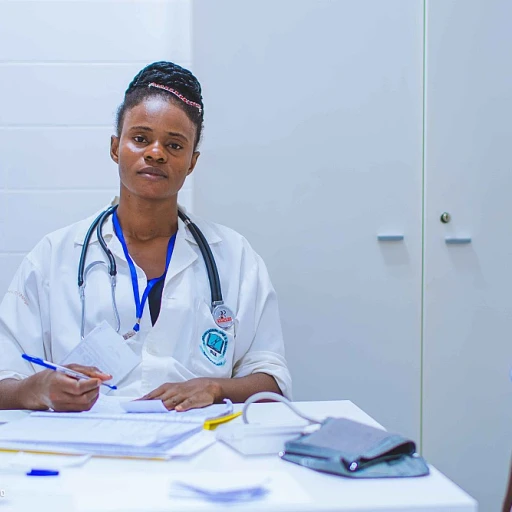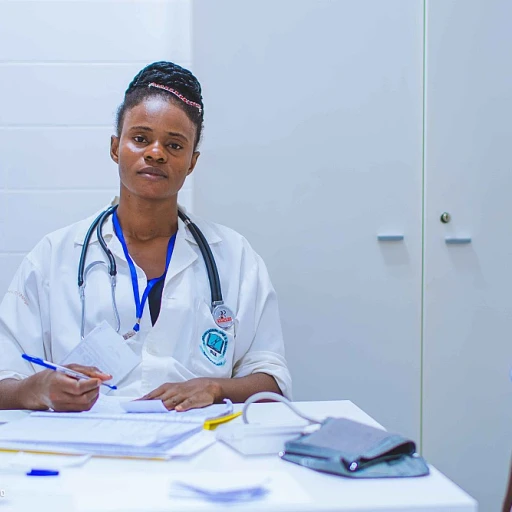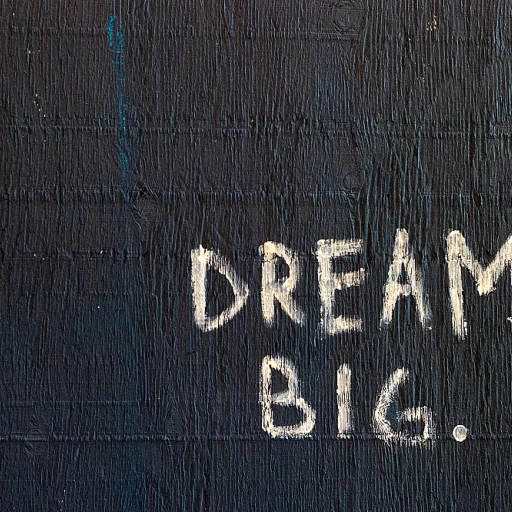
Understanding the High School Perspective
Recognizing the Unique Challenges of High School Students
Understanding the high school perspective requires acknowledging the distinctive challenges that students face in this transitional phase of life. High school students are in a critical period where they balance academics, extracurricular activities, and personal development. This stage often includes preparing for future career aspirations and experiencing school interviews, which can sometimes feel daunting. For those tasked with crafting interview questions for high school students, it's essential to recognize these challenges and approach the process with empathy and insight. Interviewers should appreciate the limited work experience typical of high school students and focus questions on their problem-solving approaches, communication skills, and potential. Key to this understanding is realizing the importance of relevant topics like "showcasing extracurricular activities" and aligning questions that relate closely to students' current experiences. For instance, an effective interview question might ask students to provide a specific example of how they managed to balance school work with extracurricular commitments. This not only assesses their time management skills but also surfaces their ability to handle multiple responsibilities. Additionally, to aid students in the interview process, you can provide them with resources on what to expect and how to ace their interviews. For those interested in further exploration of insightful queries to prepare students for their career paths, consider visiting this guide on essential questions to ask at a career fair. This resource can be invaluable for students aiming to enhance their interview readiness with practical advice and sample questions answers applicable to real-world situations.Essential Interview Questions for High School Students
Key Inquiries to Gauge Potential
When crafting interview questions for high school students, it's essential to tailor inquiries that not only assess a student's qualifications, but also allow them to showcase their unique talents and aspirations. Here are some critical questions to consider:- What interests you about this specific opportunity?
This question helps identify a student's motivations and understanding of the role or position. A well-thought-out answer can demonstrate their commitment and excitement, as well as their research skills. - Can you give me an example of a time when you solved a problem creatively?
Creative problem-solving is a vital skill for students. Their response to this question will provide insight into their analytical thinking, originality, and ability to overcome challenges. - How do you balance your school work with extracurricular activities?
Effective time management is crucial for high school students. This question assesses their capability to organize their commitments while still pursuing academic excellence. - Tell me about a project or activity that you are particularly proud of.
Open-ended questions like this allow students to narrate specific examples of their achievements, showcasing their skills and passions that might not be evident from their resume alone. - How do you approach teamwork and collaboration in school settings?
Collaboration is an essential part of many school and job environments. A student's answer can reveal their capacity to work effectively with others.
Balancing School and Career Aspirations
Reconciling Educational Goals with Career or Job Aspirations
As high school students stand on the cusp of major life decisions, the balancing act between school responsibilities and future career aspirations becomes crucial. This dual focus not only influences their immediate academic performance but also shapes their approach to potential job interviews.
The structure of school interviews often aims to gauge a student's ability to manage these dual responsibilities effectively. It’s critical that students do not perceive their school aspirations as disconnected from their career visions. Instead, viewing them as complementary can provide a coherent narrative during interviews.
Highlighting Relevant Skills and Experience
When preparing for interviews, students should highlight how their school experiences have developed essential skills. Problem solving, time management, and communication skills are nurtured through various aspects of school life, from group projects to handling school clubs. Questions that explore these areas can be expected in both sample job interviews and academic admissions processes.
When answering questions, students should try to incorporate specific examples from their school journey. Whether it's a challenging group project or leading a club activity, these experiences can effectively demonstrate capabilities to an interviewer.
Strategies to Balance Academic and Career-Related Goals
- Prioritize Tasks: Encourage students to differentiate between urgent and important tasks. Managing deadlines within their school and extracurricular activities can prevent last-minute stress and improve their performance during interviews.
- Time Management: Establishing a realistic timetable that factors in study, rest, and preparation for interviews can be beneficial. It's about allocating time efficiently to ensure a well-rounded schedule.
- Practice Interviews: Mock interviews can help students refine their answers to common interview questions. Understanding potential questions and rehearsing can significantly improve their confidence and the quality of answers.
Ultimately, being intentional about merging academic goals with career aspirations is essential. Students should be encouraged to articulate this during interviews, as it reflects well-roundedness and readiness for the next step in their journey.
Preparing Students for the Interview Process
Equipping Students with the Tools for a Successful Interview
Preparing high school students for an interview goes beyond just briefing them on potential questions and answers. It's about equipping them with the skills and confidence needed to navigate the interview process effectively. Firstly, communication skills are paramount. Students should practice articulating their thoughts clearly and confidently. Encourage them to engage in practice interviews where they can rehearse their responses to common interview questions. Body language is equally important; maintaining eye contact and displaying positive demeanor can leave a lasting impression on the interviewer. Apart from verbal and non-verbal interactions, it's crucial for students to understand the importance of exemplifying skills through specific examples. Encourage them to reflect on their experiences in school, extracurricular activities, and any volunteer work to provide concrete examples during the interview. Time management is also critical in preparing for interviews. Students need to allocate time for anticipation of potential questions and crafting authentic, thoughtful answers. Ensuring they arrive at the venue well ahead of time and are organized with necessary documents is also part of this preparation. Finally, it's beneficial to address the topic of anxiety, which can impede performance. Students must learn strategies to stay calm under pressure. Techniques such as deep-breathing exercises or positive visualization can be remarkably helpful. In sum, a well-rounded preparation encourages students not just to answer questions but to present themselves as capable and confident candidates. This forms the bedrock of a successful interview experience for high school students.Common Mistakes to Avoid
Identifying Pitfalls in the Interview Process
Understanding where high school students commonly stumble during the interview process can significantly increase their chance of success. It's crucial to prepare them to give confident interview answers and avoid certain common mistakes.- Overlooking Body Language: Many students focus solely on verbal communication without realizing the importance of body language. Demonstrating positive body language by maintaining good posture, making eye contact, and avoiding crossed arms can make a strong impression on the interviewer.
- Unresearched Answers: A lack of preparation can lead to misguided responses during school or job interviews. In order to excel, students should research the school admissions process or the job role, enabling them to provide well-informed and specific examples during their interviews.
- Ignoring the Strength in Extracurriculars: Extracurricular activities help build a student's communication, problem-solving, and time-management skills. It's advantageous for students to discuss these experiences to show their ability to balance school and other responsibilities.
- Focusing Anxiety on Perfection: Students often put undue pressure on themselves to be perfect, causing stress and missed opportunities in interviews. Encourage them to focus on sharing honest, thoughtful answers to common interview questions, rather than memorizing sample answers.
- Neglecting the Importance of Asking Questions: An interview is a two-way street. Students should come prepared with thoughtful questions to ask the interviewer, demonstrating their interest in the school or job and their proactive nature.
Leveraging Extracurricular Activities
Harnessing the Power of Extracurricular Involvement
Extracurricular activities play a significant role in shaping high school students' skills and experiences, an often underestimated factor in the school interview process. While formal education lays the foundation, participation in extracurriculars provides students with practical skills and unique examples that they can share during interviews, enhancing their profile as well-rounded candidates.- Developing Soft Skills: Involvement in clubs or sports teams can enhance communication skills, teamwork, and leadership capabilities—qualities that are invaluable during job interviews and school admissions. These activities offer students the opportunity to practice and perfect these soft skills, which are critical when responding to interview questions effectively.
- Showcasing Problem-Solving Abilities: Extracurricular activities often require students to engage in problem solving, whether it’s strategizing in a debate team or managing a funding challenge for a school project. Highlighting specific examples of these experiences can help students fill gaps in their resume, making their answers more compelling and relatable.
- Providing Concrete Examples: When responding to common interview questions, students can leverage experiences from extracurricular involvement as specific examples of times they demonstrated initiative, overcame challenges, or handled responsibilities beyond the classroom. This kind of evidence can empower students to present themselves as proactive and driven individuals during school interviews.
- Boosting Confidence: Participation in extracurriculars can boost a student's confidence, directly impacting their demeanor during the interview process. Confidence is often reflected in body language and the ability to communicate effectively, both of which are critical components evaluated by interviewers.













